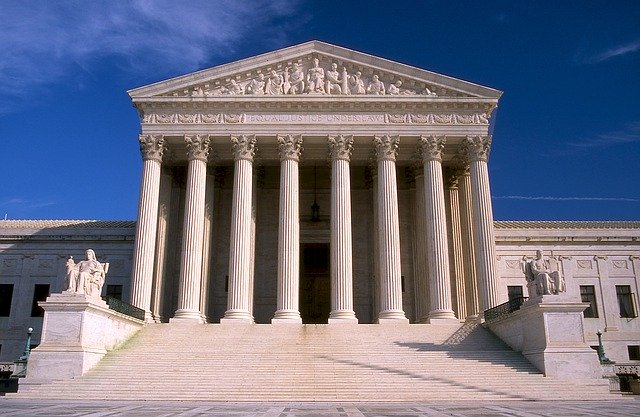The U.S. Supreme Court today in a 5-4 vote ruled against a Louisiana law requiring doctors who perform abortions in the state to have admitting privileges in nearby hospitals, four years after striking down an almost-identical Texas law.
The pro-life chairman of the U.S. Conference of Catholic Bishops condemned the decision in a statement.
“The Court’s failure to recognize the legitimacy of laws prioritizing women’s health and safety over abortion business interests continues a cruel precedent,” stated Archbishop Naumann of Kansas City in Kansas, who chairs the USCCB’s Committee for Pro-Life Activities. “As we grieve this decision and the pregnant women who will be harmed by it, we continue to pray and fight for justice for mothers and children.”
June Medical Services vs. Russo was the first major abortion case heard by the court after President Trump’s appointment of two conservatives to the bench – Justices Neal Gorsuch and Brett Kavanaugh – leading to a 5-4 right-leaning bent to the court. However, Chief Justice John Roberts voted with the four liberal-leaning justices in rebuffing the Louisiana law, pointing in a separate concurring opinion to the legal doctrine of stare decisis – the idea that courts should generally not overrule their rulings made in prior cases.
“The legal doctrine of stare decisis requires us, absent special circumstances, to treat like cases alike,” Roberts wrote. “The Louisiana law imposes a burden on access to abortion just as severe as that imposed by the Texas law, for the same reasons. Therefore Louisiana’s law cannot stand under our precedents.”
However, Roberts noted he voted with the dissent in the Texas law – Whole Women’s Health vs. Hellerstedt– and believes that case was “wrongly decided.”
Justice Stephen Breyer wrote the plurality opinion, which was joined by Justices Ruth Bader Ginsburg, Elena Kagan and Sonia Sotomayor. Justices Samuel Alito, Gorsuch, Kavanaugh and Clarence Thomas each wrote dissenting opinions.
Breyer wrote that Louisiana’s law “poses a ‘substantial obstacle’ to women seeking an abortion” and “offers no significant health-related benefits.”
“The law consequently imposes an ‘undue burden’ on a woman’s constitutional right to choose to have an abortion,” he wrote.
The USCCB filed an amicus curae brief in the case along with the Louisiana Conference of Catholic Bishops and the National Association of Evangelicals urging the court to uphold the law. That brief can be viewed here.

